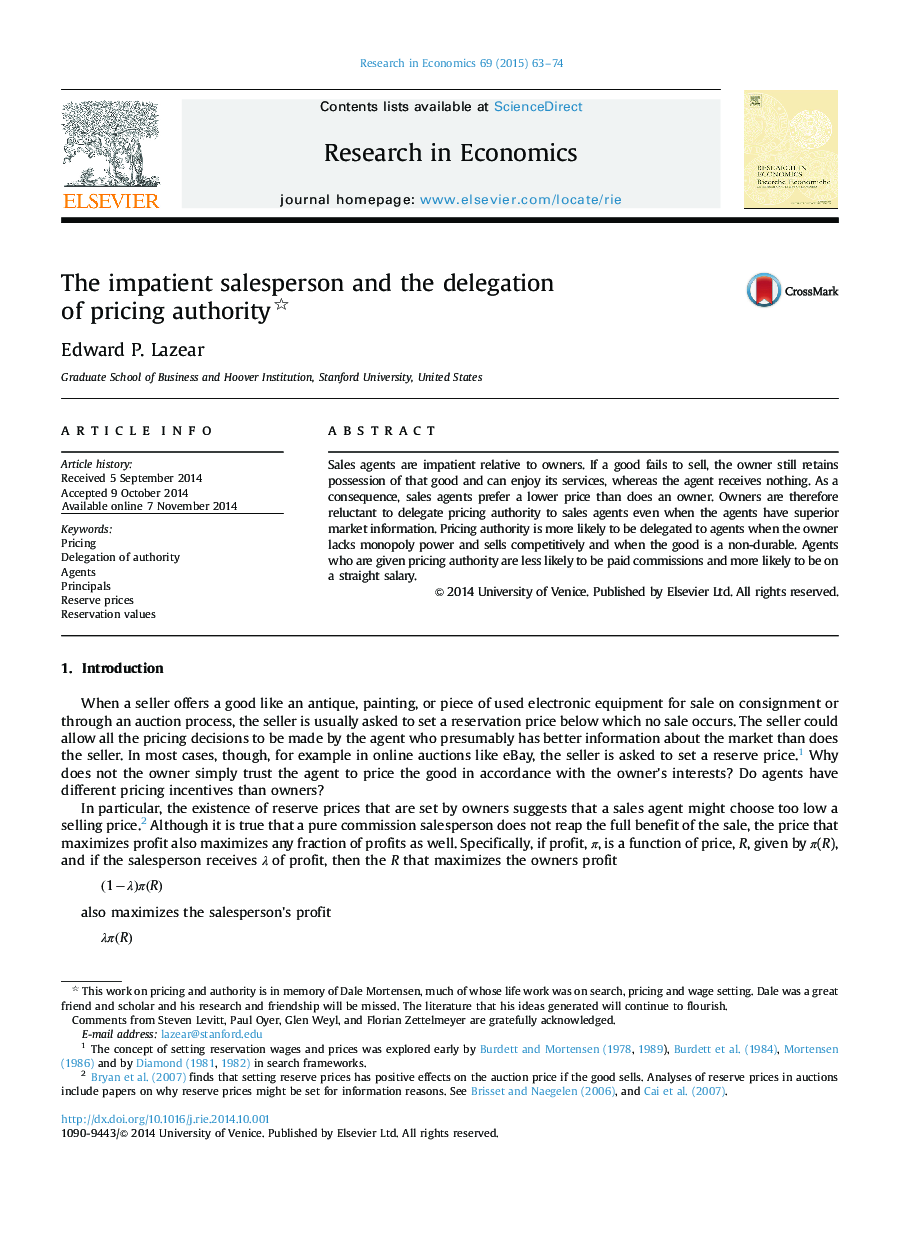| Article ID | Journal | Published Year | Pages | File Type |
|---|---|---|---|---|
| 984436 | Research in Economics | 2015 | 12 Pages |
•A principal-agent theory of delegation of pricing authority.•Sales agents are impatient relative to owners.•If a good fails to sell, the owner still retains possession of that good, the agent cannot enjoy its services.•Pricing authority is delegated when the owner lacks monopoly power and the good is a non-durable.•Agents who are given pricing authority are more likely to be on a salary.
Sales agents are impatient relative to owners. If a good fails to sell, the owner still retains possession of that good and can enjoy its services, whereas the agent receives nothing. As a consequence, sales agents prefer a lower price than does an owner. Owners are therefore reluctant to delegate pricing authority to sales agents even when the agents have superior market information. Pricing authority is more likely to be delegated to agents when the owner lacks monopoly power and sells competitively and when the good is a non-durable. Agents who are given pricing authority are less likely to be paid commissions and more likely to be on a straight salary.
